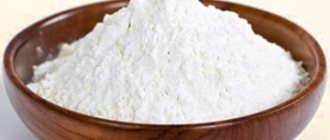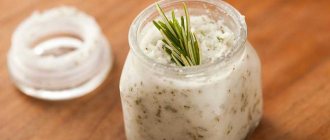What affects the safety of eggs?
The period during which the egg will be stored directly depends on the factors affecting the product. These include:
- cracks, any damage to the shell;
- date of demolition;
- storage temperature (refrigerator or freezer, room temperature);
- the presence of heat treatment (cooked, raw or colored).
In accordance with the listed conditions, they are stored from 24 hours to 12 months.
We take into account the date of purchase and demolition
Many people know that producers indicate the date of sorting, not the date of laying of eggs. Because of this, you will not be able to understand how long the egg actually lies. This information is only available if you raise your own laying hens or buy homemade products from trusted vendors. Always study the markings on the packaging and ask the seller about the date of demolition. The freshness of eggs is checked independently at home using several methods:
- Place the egg in water with dissolved salt. The fresh one will fall down (alternatively, it will rise with the blunt end up), the low-quality one will float or float to the top.
- Break into a bowl. In a stale product, the yolk will mix with the white.
- Shake near your ear. No noise is a guarantee of freshness.
It is worth noting that fresh boiled eggs are very difficult to peel.
You should know it
Nutritional value of chicken eggs
The special value of eggs is in vitamin U (the initial letter of the word Ulcus is ulcer). This substance (chemists call it methylmethionine) promotes the healing of stomach and intestinal ulcers. In addition, without it, the synthesis of B vitamins is impossible.
Vitamin U is found in many green vegetables (spinach, asparagus, cabbage), but we rarely eat them fresh, especially in winter. When heated, the vitamin decomposes. In summer there is no particular shortage of it, but in winter, raw yolk is sometimes the only source of the most beneficial substance.
To provide the body with valuable components, you need to know how long eggs are stored and adhere to the requirements for storage conditions.
Dietary and table eggs
There are no differences in storage conditions for dietary and table eggs. The product remains dietary for 7 days from the moment it is received from the chicken. Then it goes into the dining room category.
A chicken egg is able to tell about itself if it is labeled. The stamping method should indicate on it:
1. For dietary:
- view (D);
- sorting date (day and month);
- category (B – highest, 0 – selective, 1, 2, 3).
2. For canteens:
- view (C);
- category (B,0,1,2,3).
If an egg is not marked, it is impossible to determine what species it is.
Categories of chicken eggs depending on their weight
Which eggs last longer?
If the eggs are laid by your own chickens or purchased from familiar farmers, they are stored for about 3 months. It is advisable to consume those purchased in the store within 30 days. Also consider storage conditions: eggs placed in the refrigerator will remain fresh longer. Raw ones last for at least 30 days, hard-boiled - about a week, soft-boiled - no more than 48 hours. If you see a crack in the shell, eat the egg within 24 hours. Shelf life may depend on the category and color of the shell. According to the law, dietary ones must be put up for sale no later than 7 days from the date of demolition, canteens - 25 days. Also note that brown shells are denser than white shells, so they last longer.
Regulatory requirements according to GOST for product storage
Checking eggs for freshness
The principles of product storage and the permissible period are determined by standards.
This is GOST 31654-2012 “Chicken eggs for food - technical conditions”, which provides for the following shelf life of eggs:
- Dietary - no more than a week.
- Dining rooms:
- from -2 to 0 degrees - no more than 3 months (90 days);
- from 0 to +20 degrees - no more than 25 days.
How to store at room temperature
It is allowed to store without refrigeration, observing certain conditions:
- Eggs must be raw and fresh.
- The air temperature should not exceed 20 ° C, and humidity – 85%.
- There are no drafts or sudden temperature changes.
To preserve the product for as long as possible, use popular storage methods.
Wrapped in paper
Plain paper increases shelf life. Wrap each egg in a layer of newspaper or tracing paper, place it in a container and leave it in the coolest place in the apartment.
Immersed in salt solution
An egg, dipped in water with salt, undergoes a kind of preservation. Dilute ordinary salt in water at the rate of 25 g per 1000 ml of liquid, cool and immerse the eggs in the solution. Close the container with a lid and put it in a cool, dark place.
How long can you store without refrigeration?
If you know exactly the demolition date, preservation is possible in room conditions for about 3 weeks. Additional storage methods in paper or saline solution will extend freshness for about 7 more days.
What is not recommended to do during storage
Do not do it:
- Place foods that smell too strong nearby.
- Place a large number of eggs in one container. If you do this, they may crack under pressure.
- Even when using various traditional methods to preserve the testicles, they should not be consumed after a long period of time. The most optimal period is a month.
- Store dirty food. Washing them is also not the best idea. You need to wipe them with a dry cloth.
- In winter, do not place eggs for storage in an uninsulated balcony or canopy.
Note! Water can destroy the protective film on the shell.
If the droppings are not wiped off, then the testicles are immersed in a warm salty solution for several minutes, after which they are cleaned with a sponge.
In a refrigerator
Traditionally, all housewives store eggs in the refrigerator. For high-quality preservation of eggs, some rules are also provided:
- Watch how you laid it. The pointy end of the egg should be at the bottom. This will ensure proper gas exchange inside and long-term preservation.
- Do not place in the refrigerator door, but in the vegetable container.
- Don't wash. On the surface of the shell there is a thin shell that protects the egg from the harmful effects of bacteria.
How long to store hard-boiled and soft-boiled eggs?
Boiled eggs will spoil much faster than raw eggs. The shelf life depends on the consistency of the yolk and external damage. During cooking, the shell sometimes bursts, which shortens the shelf life of the product. Boiled eggs can be stored for no more than 72 hours. A whole soft-boiled egg should be used within 2 days, and a hard-boiled egg should be used within 14 days. Without the shell, it will last in the refrigerator for no more than 3 days.
How long do raw eggs last in the refrigerator?
Taking into account all the factors, laying time and type of storage, the eggs will easily lie on the refrigerator shelves for 30 to 90 days.
How long can Easter eggs be stored?
The storage time of Easter eggs is determined by the method of dyeing. If the egg is covered with film, the quality will remain only for 3-4 days, even for hard-boiled eggs. Chemical food coloring adds several days to the traditional shelf life. Colored with natural products (onion peels, beets) will last for 2 weeks.
How long does a cracked egg last?
If the outer shell of the egg is damaged, consume it within 2 days.
Reviews
It's all poo-poo-ha! Eggs can be stored without a refrigerator, in a dark place, if possible, in a draft. A normal, FRESH egg can lie at room temperature for about a week - believe me, a villager who has chickens. By the way, an egg may simply freeze near the back wall of the refrigerator, then thaw and you will have to wash the shelf.
Alexander, https://takprosto.cc/kak-hranit-yayca/
Yes, it seems that the time has passed when they took eggs in stock in trays... you can’t keep up with the prices, and eating expired eggs is only to your own detriment, that’s why I don’t buy eggs in large quantities, and besides, when buying, I pay attention to the labeling, which indicates expiration date . The situation is approximately the same with quail eggs; I don’t take more than a dozen. I often see that people buy cheaper cracked eggs or the so-called “battle”, I don’t take the risk, unless it’s something to put in baked goods. You won’t be able to save much, but you can create health problems for yourself. Living by this principle, there are no problems with storing eggs in the refrigerator... I ran out of eggs, went and bought a dozen more... Zoya, https://postirke.ru/xranenie/crok-xraneniya-yaic-v-xolodilnike.html
In the freezer
It is recommended to store raw eggs without shells in the freezer. This storage method will save you if you accidentally break many eggs at once. Pour the mixed white and yolk into a freezer container and add a little sugar (salt) to prevent the product from becoming grainy. Simple dishes are usually prepared from such a mass, so think in advance what needs to be added. Separately, the whites and yolks are frozen in the same way. Boiled ones can also be kept in the freezer, but only the yolk is preserved; after defrosting, the white loses its taste and nutritional qualities. Boil the yolk for a few minutes, then place in a container and place in the freezer.
Eggs preserved using this method must be thawed properly. Do not take the raw frozen product directly into a warm environment; let it thaw in the refrigerator compartment. Pre-cooked frozen yolks can be immediately placed in the microwave.
Comparative table of temperature, conditions and shelf life of different types of eggs
How long can raw eggs of different types be stored? For clarity and ease of finding the optimal parameters for storing the product and shelf life, we will indicate information depending on the types of eggs.
| View | Humidity, % | Shelf life in the refrigerator (+2…+4°С), days | Shelf life outside the refrigerator (+10…+20°С), days |
| Chicken | |||
| raw | 80-85 | 30 | 21 |
| boiled | 80-85 | Up to 5 | Until 3 |
| Easter | 80-85 | Up to 7 | Up to 5 |
| Goose | |||
| raw | 80 | 14 | No more than 14 |
| boiled | 80 | 2-3 | 1-2 |
| Duck | |||
| raw | 80 | Up to 14 | Up to 7 |
| boiled | 80 | 2-3 | 1 |
| Quail | |||
| raw | 70-80 | 60 | 30 |
| boiled | 70-80 | 5 | 1 |
| Turkey | |||
| raw | 80 | Up to 25 | Not desirable |
| boiled | 80 | 1-2 | Not desirable |
| Ostrich | |||
| raw | 40-70 | Up to 7 months | 1 month |
| boiled | 40-70 | Up to 5 | 3 |
Given the required parameters, raw ones are suitable for eating longer than cooked ones.
Traditional methods
Using traditional storage methods, you can ensure long-term preservation of the product up to one year. Most methods are based on coating the shell with some substance.
Grease
To keep eggs longer than usual without a refrigeration chamber, the shells are coated with fat and vegetable oil. Lubricate the egg with a fat-containing substance and place the pointed end down in a box with oats, wheat, sand.
Brush with egg white
Prepare the required amount of protein, then, without beating it, cover the egg with one layer, and after drying, with a second one. When all the layers are dry, wrap the food in newspaper, tracing paper and put it in a container. It is better to save it in a dark place - under the bed, in the farthest cabinet.
Lubrication with paraffin or wax
Melt paraffin or wax in a water bath. When the mixture becomes liquid, quickly and carefully dip the egg into it. Wait until the “cover” has completely hardened and put it in a storage container.
Potassium permanganate solution
It is recommended to store testicles using a solution of potassium permanganate (potassium permanganate) for about 3 weeks at room temperature. Prepare a bright pink solution of potassium permanganate, dip the product in it for a few seconds and dry.
Sweet water
The question is controversial. Some housewives do not believe in this method of storage, others recommend and promise: this way the product can be stored for up to 6 months. To use this method, prepare sugar syrup at the rate of 1 kg of sugar per 1 liter of water and cool. Place the eggs in sweet water for a few seconds, dry and wipe with a towel.
Dry salt
To use this method you will need a lot of table salt. Place the eggs in a container - a box, a box, gradually filling the space between them with large crystals.
Lime solution
Eggs are stored in lime solution for up to six months at a temperature not exceeding 10 °C. Pour 300–400 g of lime into a bucket of water and wait until the solution turns bluish-green. Then add the food into the solution and close the lid. The water in the bucket should be covered with a film. If it disappears, the solution is replaced. Please note: if stored in this way for a long time, a specific taste may appear.
General storage rules
The easiest way to keep eggs fresh is to buy them as such. They remain shelf life for approximately 35-40 days at a temperature of 5-10 degrees.
The date when the hens laid them is always indicated on the packaging. It is important to check it when purchasing.
- It is better to choose those eggs that are stored in a dark cardboard container. The container itself protects the eggs from drafts, blowing, temperature and humidity changes.
- Cardboard or foam work well for this. Thin plastic does not protect the product from temperature changes.
- Only cardboard provides good protection from light. Polystyrene foam allows eggs to be stored in light, which activates chemical processes inside the shell.
Advice. In the refrigerator or other place where eggs are stored, it is better to leave them in the same container.
The shelf life can be extended by oats and vegetable oil. To do this, you need to pour a little oats onto the bottom of the cells. And the eggs themselves can be slightly greased with oil.
When packing, eggs should be placed with the sharp end down - this will also extend the shelf life.
How to cool eggs without a refrigerator
When it is hot in the apartment and outside, a structure is built that is suitable for cooling and storing any food, including eggs. Place the products in a container with a tight lid and place in a bowl of cold water. Cover the top with a natural cloth or towel so that the ends fall into the water. The water on the towel will evaporate, absorbing the heat of the container.
If you need to quickly cool boiled eggs, immediately after boiling, drain the boiling water and place the pan under running cold water. The egg will cool quickly and will be easier to peel.
How to check the suitability of chicken eggs
Dispelling the myths that eggs need to be immersed in salt water, vinegar, and so on for testing, it should be said that only the organoleptic content of the contents can determine whether it is fit for consumption.
Beat the egg onto a flat plate. Fresh will have:
- thick, clear-cut yolk;
- dense, jelly-like protein;
- some part of a rare protein substance.
The older the egg, the rarer and more watery the white becomes. However, it is edible if:
- the yolk has clear boundaries;
- there is no foreign smell of rottenness (hydrogen sulfide).
We recommend reading: Shelf life and storage conditions of quail eggs: myths and reality.
How to store quail eggs
Eggs laid by quail and guinea fowl are stored longer than chicken eggs due to the higher content of microelements that resist bacteria. Such products can be stored in an apartment for up to 4 weeks. In the refrigerator, quail eggs should be stored only in a closed container to reduce evaporation from the surface. They will last for about 2 months. Follow the recommended storage conditions:
- place each product with the pointed end down;
- do not store them in the refrigerator door;
- keep away from strong smelling products.
Conditions and periods of storage of eggs for different types of food
The time for eating different species depends not only on the temperature at which the eggs are stored, but also on the type of bird that laid them.
How long do quail eggs last in the refrigerator and at room temperature for eating?
Quail “products” are very useful, but not all people know exactly at what temperature to store quail eggs. We answer: in the refrigeration compartment (up to +4°C) for 60 days. Indoor storage will save benefits only for 30 days (if the environment does not warm up above +20°C).
How long do goose eggs last for food?
Goose “products” are good for a short period of time. Country goose eggs are stored in the refrigerator at +2...+4°C for about 2 weeks. Outside refrigeration, up to +12°C - from 1 to 2 weeks, if the temperature is even higher, then they need to be consumed within a week.
How long do duck eggs last for eating?
The answer to the question of how long duck eggs can be stored in the cold and indoors is this:
- Up to +4 – about 2 weeks;
- Up to +12 – from 1 to 2 weeks;
- Up to +20 – no more than 7 days.
Duck, like goose, are suitable for eating for a short time.
How long do ostrich eggs last for eating?
They have a thick shell, which means they have a longer time to eat than the eggs of other birds. How long are ostrich eggs stored: in the cold at -2...+2°C - from 5 to 7 months, indoors at +12...+18 - 1 month.
How long do turkey eggs last for eating?
Turkeys carry an extremely useful product, but its shelf life is low. To preserve their usefulness, it is recommended to keep them in the cold.
Turkey eggs can be stored in the refrigerator (up to +6) for 20 to 25 days; room storage is not advisable.
Waterfowl eggs must be washed before placing in a compartment or container.
How to store goose eggs
Goose eggs are rarely found on store shelves, but they are still eaten, although they are not as healthy as chicken eggs. The storage conditions for a goose egg do not differ from the method of storing a chicken egg, but the period is reduced to only 10 days. The optimal storage place is the refrigerator. Before placing in the refrigerator, be sure to wash the product with detergent or baking soda. The pores in the shell are large, and there is a risk of infection of the white or yolk with dangerous bacteria. By washing it, you will reduce the shelf life, but protect yourself from diseases.
How long and how to store soft-boiled, hard-boiled
According to SanPiN, boiled eggs are stored for no longer than 36 hours in catering establishments.
- In a refrigerator. At home (it makes no difference how it is cooked: soft-boiled or hard-boiled), the shelf life is up to 2 days. The egg is peeled before consumption.
- No refrigerator. How long boiled eggs can be stored without refrigeration is not even discussed - not at all. We cooked it and ate it warm, or made a salad and ate it. If it doesn’t work, put it in the refrigerator immediately.
Useful tips
Is it possible to store eggs in the refrigerator door?
Experts do not recommend putting eggs in the refrigerator door. Frequent opening and closing of the refrigerator will cause a sharp temperature difference, which will have a detrimental effect on the freshness of the product. The best installation option is boxes for vegetables or fruits. Lay in several rows, but do not overdo it: the bottom layer may crack under the pressure of the top ones.
Is it possible to store eggs together with other products?
It is not recommended to store eggs together with other strong-smelling foods. The shell actively transmits odor, so an unpleasant taste may appear when used.
Is it possible to freeze eggs
It is not recommended to freeze eggs for future use. As a result of such storage, they will lose some of the valuable substances. But if you cannot do without it, for example, if there are a lot of them, then know that only the yolks can be frozen. The structure of the yolks will not change after defrosting, unlike the whites, which become rubbery. Before sending eggs to the freezer, they must be shelled and placed in a bag or container with a tightly closed lid. This is necessary to ensure that the product does not absorb any foreign odors. Boiled eggs can be stored for up to a year if frozen.
Features of some products
Most fruits and vegetables store well without refrigeration. But exotic bananas, such as bananas, lose their taste and beneficial qualities at low temperatures. But the berries have a very fragile skin that bursts easily. In this case, juice is released, as a result of which mold may form the very next day. So they should be placed in cardboard boxes in a thin layer and placed in the refrigerator.
It is also worth considering that some fruits and vegetables emit ethylene. This gas leads to accelerated ripening. Therefore, apples, bananas, figs, plums, and tomatoes must be separated from the rest. This same property can be used to make unripe fruit ripen faster: put it in the same bag with an apple, for example.
In order for the greens to be well preserved, you need to trim the stems a little and put the plants in water. You can then leave them at normal temperature or place them in the refrigerator, depending on how soon they will be used. Leafy greens such as spinach and arugula are often sold in tightly packed plastic bags in stores. This is not the best way to store food as it will break, dry out and change color. To prevent this from happening, you need to transfer the leaves to a vacuum container, after rinsing and shaking off the water. After this you need to put it in the refrigerator. You can also cover the greens in the container with a dampened cloth to prevent moisture loss.
The peculiarity of nuts and seeds is that they contain a very large amount of fat, which can go rancid if stored improperly. It is best to leave them in their shells over the winter. They can be placed in a container with a well-fitting lid and taken to a cool, dark place. When cleaned, they take up little space and are convenient to use, but are more susceptible to spoilage. Therefore they must be kept in the refrigerator. They can also be frozen.
You also need to pay attention to the storage of sauces. Wine sauce in a cool place will not deteriorate for several years, and will even improve its quality
Once opened, soy sauce and salsa should be refrigerated for up to 1 year. Mayonnaise should also be kept in the refrigerator, but not more than two months. Place for sauces can be allocated on the door - they are not afraid of temperature changes when opening.
The storage conditions and periods for canned food, like other products, are indicated on the label. Usually a normal temperature is enough for them. But too high will do harm. The products will have a metallic taste. If we are talking about canned fruit, which includes jams and juices, then they will darken. At low temperatures they will become sugary. Particular attention should be paid to preserves - unsterilized canned food. They should be kept in the refrigerator; at normal temperatures, their shelf life is up to 3 days.
Storing food is a task that must be handled responsibly. It is necessary to organize the kitchen space in such a way that placing vegetables, fruits, meat, fish, dairy products, and sauces is not difficult. The table of necessary conditions and terms for various products will help with this.
Useful properties of boiled eggs
However, of the variety of boiled eggs, the healthiest ones are soft-boiled eggs, since raw yolks are better absorbed by the body.
Boiled eggs are recommended to prevent tumors and protect the heart and blood vessels. Frequent consumption of boiled chicken eggs will strengthen nails, teeth and bones, have a positive effect on vision, the functioning of the brain, nervous and digestive systems. Eggs are very useful for athletes to improve their muscles.
Eggs are considered more than just a nutritious food with plenty of protein. They are also recommended for use by sick people, as well as those who regularly go on various diets. Of course, healthy people also enjoy eating eggs. And despite the fact that fresh eggs retain all the most beneficial properties, in most cases people prefer boiled eggs.
Signs of damage
Spoiled raw whites and yolks instantly float after placing them in a glass of water . This product is at least 3 weeks old. Fresh yolks and whites immediately sink when dropped into water.
In spoiled eggs, air accumulates in the shell. The air sac is visible during their candling. If the white and yolk begin to deteriorate, they develop a specific smell of hydrogen sulfide. It is easy to catch.
Darkening of the protein also indicates its deterioration. If cooked yolks become weathered, this indicates that they are not fresh.
Introduction
Chicken eggs appeared more than 2.5 thousand years ago in a small Indian town.
In European countries, eggs appeared a little later and were liked by the Romans. Currently, eggs are one of the simplest and most delicious foods. However, in ancient times eggs were treated in a very unusual way. In Rus', chicken eggs were cooked only at certain times. In those days, eggs in Russian cuisine were perceived as a separate dish, and only in the 19th century they began to use them for preparing other food products.
The egg had a special meaning in Easter rituals. They were illuminated in churches, carried to the graves of deceased loved ones and “Christed.”
It was also customary to beat eggs to show “who’s boss.”
In village families, on the first Easter day, wheat was poured into a small container on the table and an Easter egg was hidden inside. Subsequently, these grains were sown in the fields.
And the tradition of painting eggs for Easter appeared during the times of the pagans, for whom a red egg symbolized the sun, helping nature to wake up after a long winter.
What you need to know before use
Everyone knows that eggs are not a long-lasting product and that without refrigeration they quickly deteriorate. However, there are many little-known factors that can influence changes in the taste of a laying hen's gift even in the refrigerator. Most housewives do not even suspect that the product, although not alive, can nevertheless breathe.
The shell appears impenetrable, but in fact it contains several thousand microscopic pores. But each has a protective layer that allows only air to enter and traps microorganisms that can spoil the fresh product. This does not depend on the color of the shell.
The color of the outer shell depends only on the breed of chickens. But the truth is that brown eggs have thicker shells. Due to their thickness, they have a longer shelf life, they withstand transportation better without developing microcracks. But it is in brown areas that blood stains occur more often.
These alarming inclusions do not affect the taste and health in any way. The danger comes from the blood ring in the yolk. Its presence signifies the beginning of embryonic development, which was stopped for unknown reasons. Cocos with such dead embryos must be thrown away.











